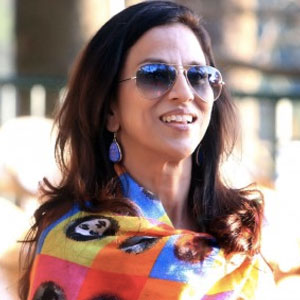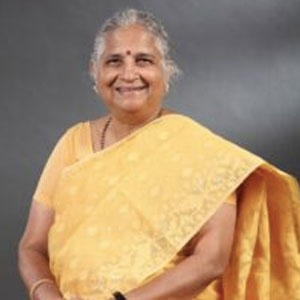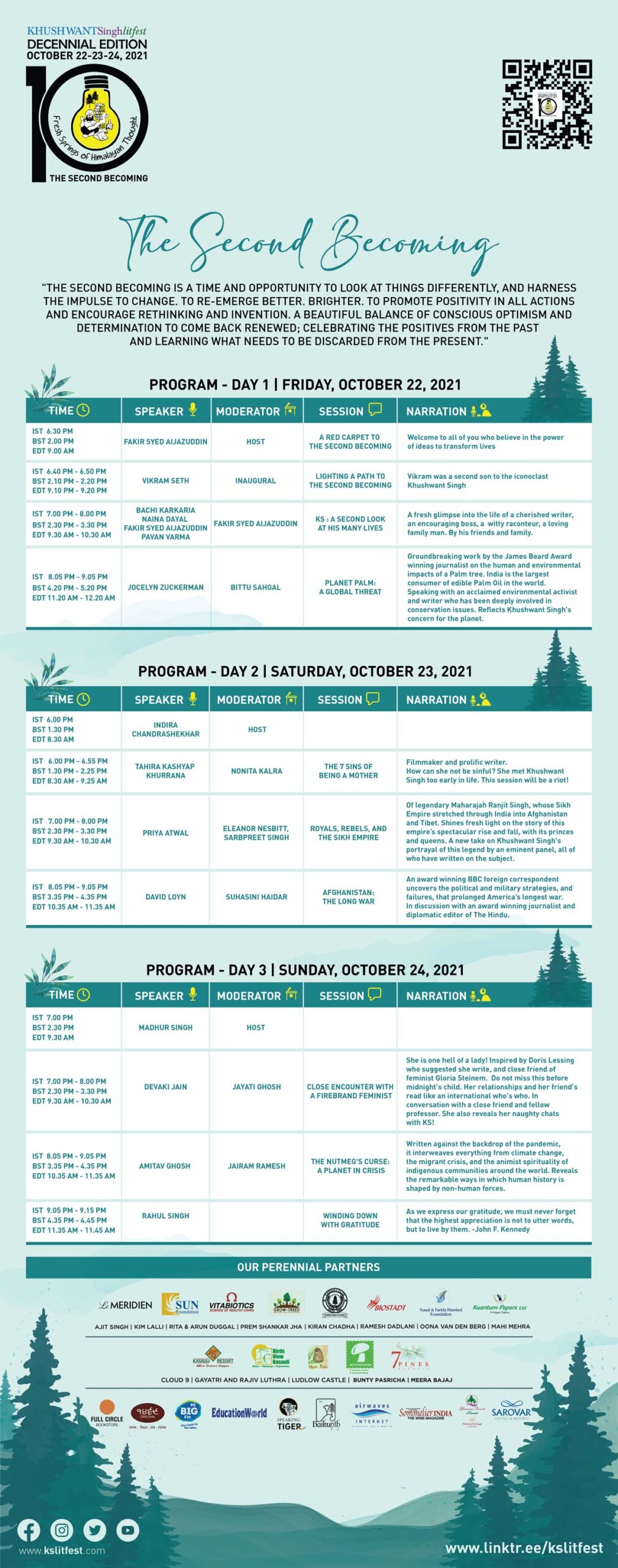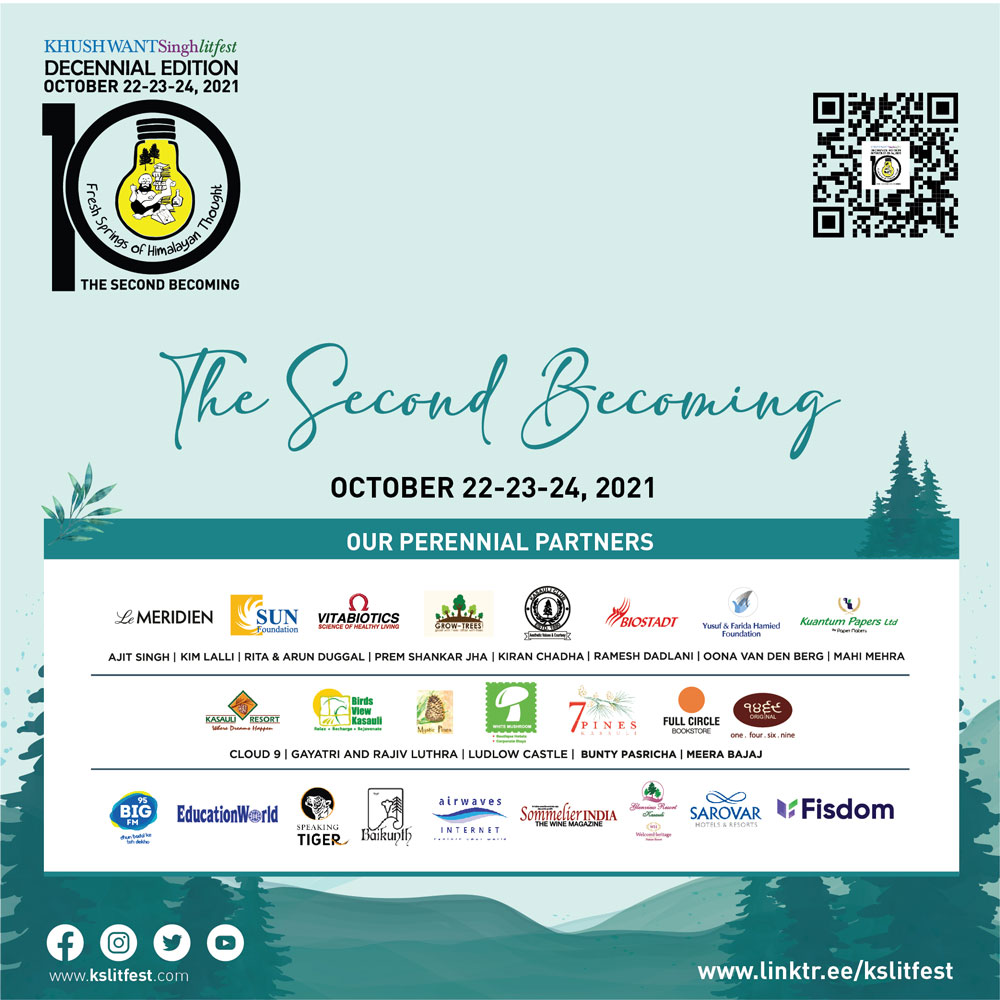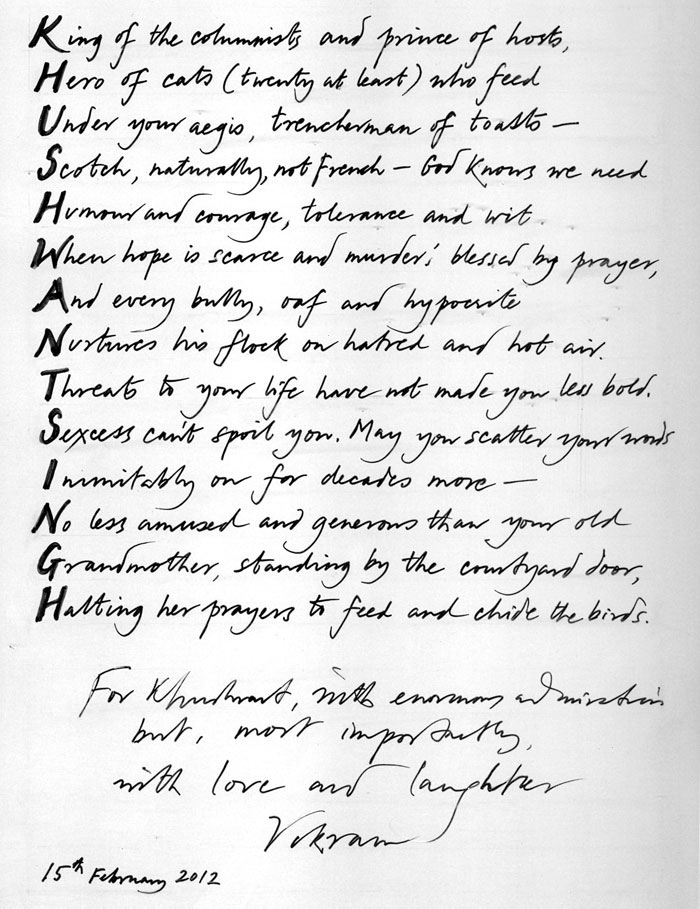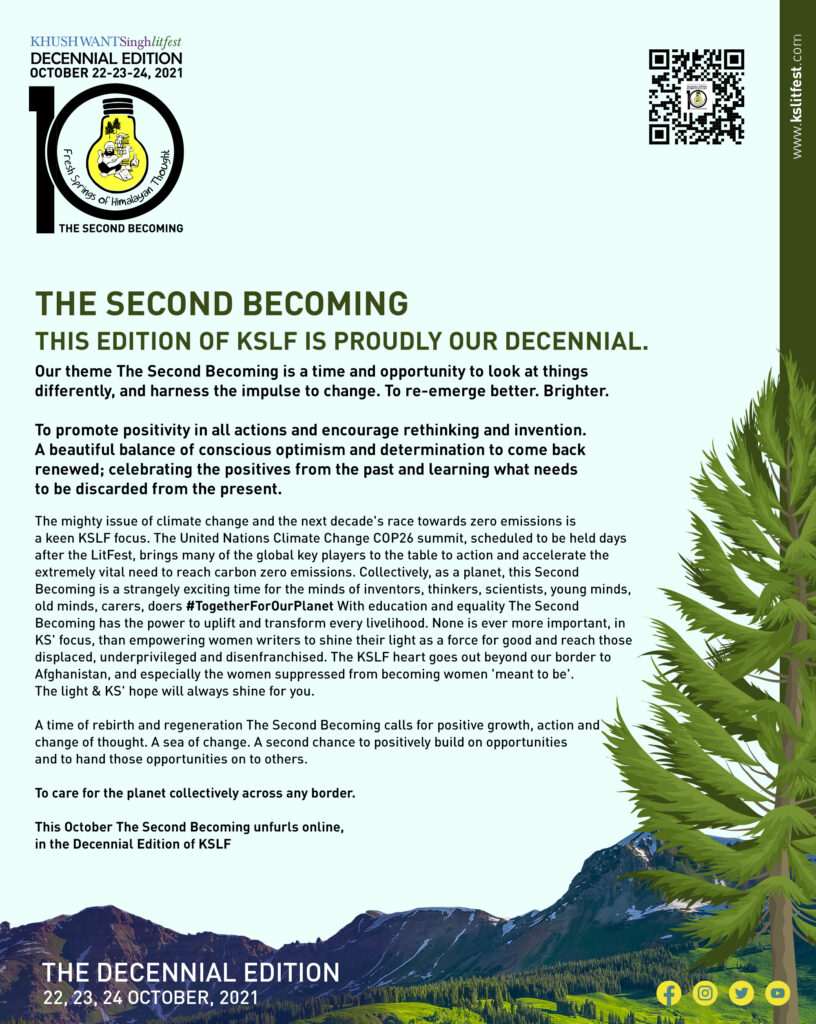THE CENTENARY EDITION OF THE KHUSHWANT SINGH LITERARY FESTIVAL (KSLF) KASAULI, 2015
To live a 100 years is to be blessed. To live on beyond is indeed to be in very heaven. Khushwant Singh did not make it to 100. But then he was ready to meet his maker a long time ago. Whether his maker was ready to receive him, as Churchill said, we will never know. What we do know is that his ideas and his work continue to live on.
HAPPY HUNDRED
100 is a celebration that encompasses the life and times of KS. And commemorates landmark years of seminal events, as we attempt to capture and celebrate the facets and interests of an extraordinary man who lived till his 100th year. The man as a son of his famous father, as a student, a family person. His carefully cultivated public persona, which was completely at odds with the real KS. A man of discipline and industry. ‘He wrote every day of his life. For nearly seventy years’. ‘Fresh springs of Himalayan thought’ is our tagline for this centenary event. Like KS, we too hope KSLF is a vibrant arena of ideas and discussions that challenge, inspire and
force us to rethink and re-imagine our lives on this planet in a completely new way. At KSLF 2015, we celebrate the life and work of KS and commemorate other centenaries, sesquicentennials, and landmark events that changed the course of people’s lives and our world forever.
ONE CENTURY DESERVES ANOTHER
The spirit behind 100 great Indian artists will be the art worlds tribute to art lover KS. His contemporaries and friends, Ismat Chugtai, with whom he shared a common love of Urdu. Bhisham Sahni and he spent their college days in Lahore together. As did Chetan Anand. They were all part of the migration across the border to Delhi or Bombay. We also celebrate the lives of India hands and India lovers on their sesquicentennial, Rudyard Kipling and W.B.Yeats. Earlier the Moghuls raided and also ruled across three centuries. This epic journey also unfolds.
PASSAGE TO PAKISTAN
The KSLF is never complete without our friends from across the border. And this year is no different. The Pakistan contingent is present in full force with ambassadors, foreign ministers, parliamentarians, who are are also novelists. Narrating personal stories of courage and conviction.
JOURNEYS
Think Pakistan, and the Partition of India immediately comes to mind. The biggest mass migration in history displaced 10 million and changed the course of countless lives forever. Bhisham Sahni, creator of Tamas and fellow centenarian will be remembered by his daughter Kalpana Sahni. The migration or exile of Burma’s last King Thebaw and his queen to remote Ratnagiri is an engrossing and graceful tale that deserves to be more widely known. In Kashmir over 60 years of migrations continue to cause heartbreak.
On a brighter note we capture the man who sailed solo around the world, on a prayer, braving the unknown in the spirit of explorers of the last century; the modern day adventurer on wings who covered a 100 countries outside Indian shores, and the motor enthusiast who discovered India’s 100 best destinations. Our speakers and interlocutors will unravel these journeys and more.
TRIBUTES TO KHAKHI
A treat for anyone with even a passing interest in our culture and history, at KSLF 2015 one can learn about the resourceful Fakirs and fifty years of Sikh rule in the extraordinary empire of Maharaja Ranjit Singh in Lahore. A former army chief gives us an insight into his experiences with recent military conflicts and diplomacy. All this against the backdrop of Kasauli cantonment, where Indian military traditions continue to hold pride of place.
A PASSION FOR POETRY
Poetry, love, longing, Urdu. These words defined KS. Only a man with so much love for poetry could write translations from Urdu that are a treat for lovers of the Shayri. The poetic philosophy of KS’s favorite Allama Iqbal will be unveiled in Shikwa and Jawab-e-Shikwa (a complaint to Allah and his response). There you go. Another irony just like KS, an agnostic talking to Allah.
PUNJAB’S SINGING GURU
Highlights of seven centuries of timeless wisdom will unfold here.
PORTRAIT OF A LADY
Any KSLF holds women centre stage. Be it honor killings, rape or Sikh and non-Sikh marriages. Or a fun look at pop culture and the serious job of Parenting in the times of the Kardashian’s. KS’s equation with women is a source of constant interest for centuries to come.
OUR COLD & LONELY PLANET
Eminent activists sound a wake-up call for Himachal, and for our trees, as they explain why it is a red flag issue that affects not only you and your children but the very survival of our planet. How much do we know about the wild fruits of Himachal? We also launch ‘Delhi Through the Seasons’ by Khushwant Singh, an exquisite production he did not get to see. This fest is dedicated to the ecology of Kasauli, summer home to KS and an inspiration for his writings for over half a century, and today the verdant venue for the literary festival held every October in his name.
ALWAYS KHUSH
While we do our bit to save the planet we must not forget to save ourselves. And nothing does our souls more good than a hearty dose of humour. For decades the Sardarji and his jokes left millions of Indians shell-shocked or doubled over in laughter. Often both. At KSLF 2015 we hope to continue in the same spirit: amuse, provoke, engage and inspire.
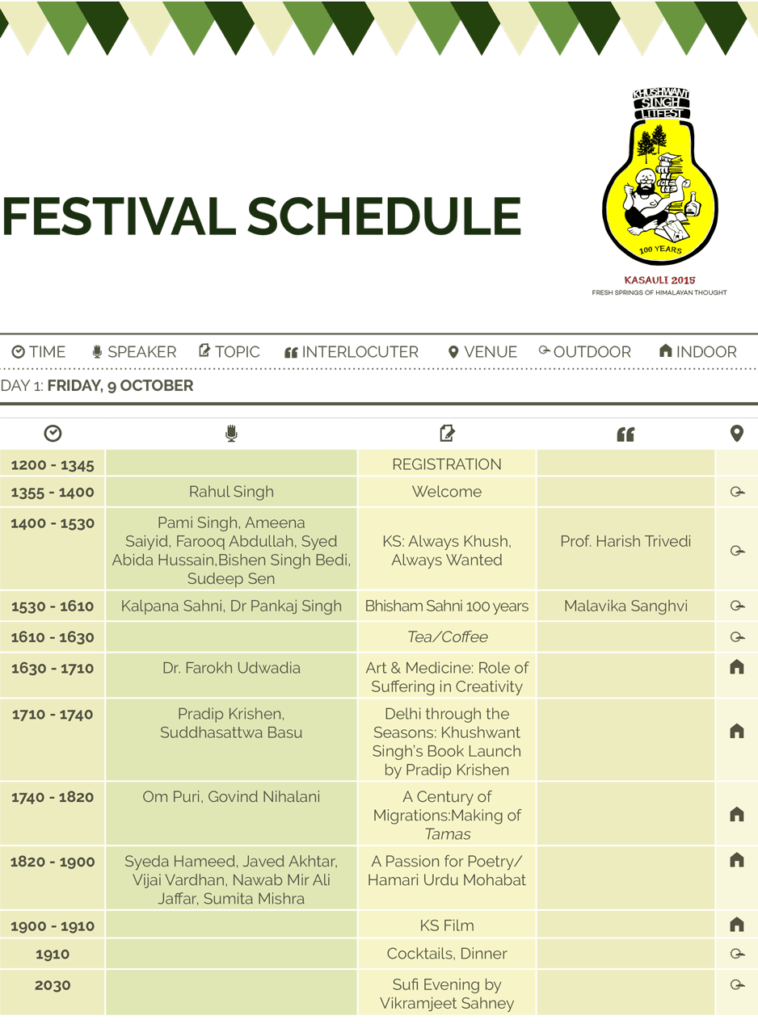
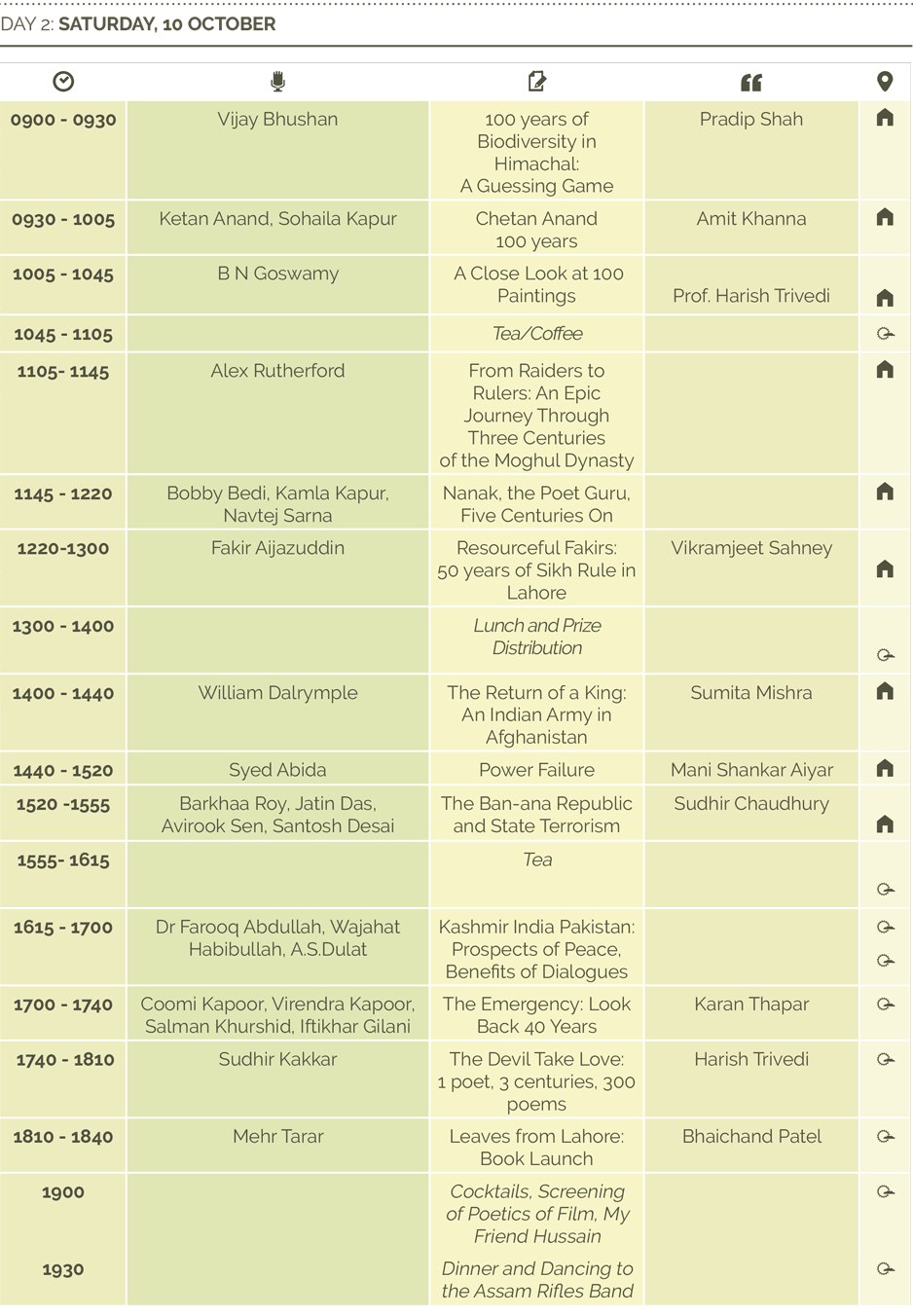
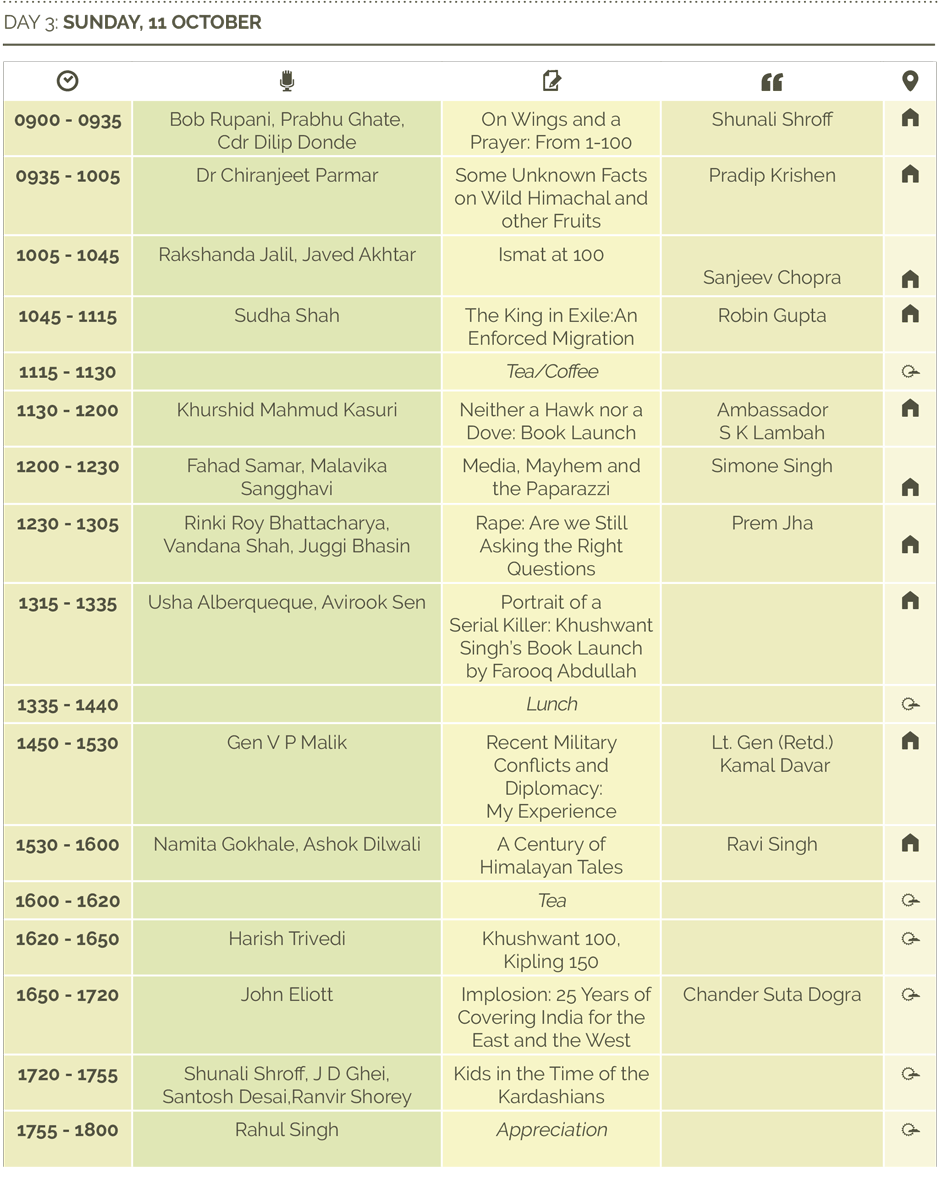

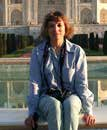
‘Alex Rutherford’, Pseudonym of Diana and Michael Preston Alex Rutherford, author of the Empire of the Moghul series of historical novels, is British husband-and-wife team Diana and Michael Preston. Both are graduates of Oxford University where Diana studied modern history. Diana is also a writer of non- ction history and one of her books was awarded a Los Angeles Times Book Prize. e Prestons have been frequent visitors to India over many years and share a love of travel.
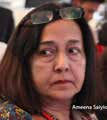
Ameena Saiyid OBE is the Managing Director of Oxford University Press Pakistan, director and co-founder of the Karachi and Islamabad literature festivals, and co-founder of the children’s and the teachers’ literature festivals. She is the rst woman to be appointed head of a multinational in Pakistan, the rst woman to be elected President of the 150-year-old Overseas Investors’ Chamber of Commerce and Industry, and the rst Pakistani woman to be awarded the most excellent Order of the British Empire (OBE) by the British Queen: the OBE was awarded in recognition of her services to women’s rights, education, intellectual property rights and Anglo-Pakistan relations. e government of France awarded her knighthood for her contribution to arts and literature.
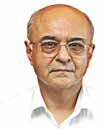
Amit Khanna has worked in theatre, radio, television, journalism, lms and is a pioneer in the converged media space, and writes and lectures on media and culture.
He founded Reliance Entertainment and was its chairman from 2000 to 2013, and continues to be on the board of several Reliance Group companies. He started his lm career as an executive producer in Dev Anand’s Navketan in 1971. He has wri en lyrics for 400 lm and non- lm songs as well as a dozen award-winning feature lms scripts and documentaries. He pioneered business news and daily soaps on Indian television. In the 1980s, he wrote, directed and produced many critically acclaimed lms. He also directed India’s rst music video in 1984.Amit Khanna set up Plus Channel in 1990 and was its managing director and group editor from 1989 to 2000. He has also been on the governing councils of the lm institutes in Pune and Kolkata. He was the rst Indian to serve on the international Emmys Jury and has also been on the jury of lm festivals and other awards in India and abroad. He co-authored Encyclopedia Britannica’s Encyclopedia of Bollywood in 2003, and published Anant Raag: In nite Verse, a collection of his poetry in 2013.
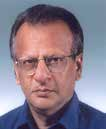
Ashok Dilwali has been a professional photographer since 1971. He has been involved in all the departments of photography but his rst and foremost love is the Himalayas. He has trekked and travelled there extensively and has produced twenty-three books on the region. He now keeps himself busy with creative aspects of photography like night photography, infra-red photography and time lapse photography, although landscape photography continues to be his forte. He lives in New Delhi with his wife Manjula and has three children and ve grandchildren.
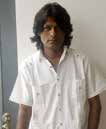
Avirook Sen is an independent journalist based in Gurgaon. He has been a reporter and editor for twenty- ve years, working in print, online and broadcast media. Sen launched the Mumbai edition of the Hindustan Times as resident editor, has edited Mid-Day, and was executive editor of the news channel NewsX. He has wri en on a wide range of subjects from cricket to terrorism, and, most recently, crime. His work has appeared in India Today, Hindustan Times, Express Tribune (Pakistan), New Scientist, NDTV, DNA, Firstpost, Mumbai Mirror and a number of other prominent publications. His rst book, Looking for America (HarperCollins, 2010) was described by Vogue magazine as a ‘Kerouac-like’ travelogue. His bestselling second book, Aarushi (Penguin, 2015) has reignited a national debate on the criminal justice system, on media ethics, and Indian middle-class a itudes. e book has been described as ‘masterly’, ‘disturbing’, ‘meticulous’ and ‘explosive’. Ian Jack has said: Few accounts of modern India can match its compelling story and unforgiving light – it ma ers to the here and now as few books do. I found it unputdownable.’Sen is an ardent admirer of Capote and Hitchens, and even more so of Hunter ompson. He is also greatly inspired by Fela Kuti, the (late) Nigerian musician, whose line ‘I no be gentleman at all’ resonates with him. Sen was born and raised in Calcu a.
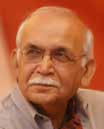
B.N. Goswamy is Professor Emeritus of Art History at the Panjab University, Chandigarh. His work covers a wide range and is regarded, especially in the area of Indian painting, as having in uenced much thinking. Among the honours he has received are the Jawaharlal Nehru Fellowship, the Rietberg Award for Outstanding Research in Art History, the Padma Shri (1998) and the Padma Bhushan (2008). Professor Goswamy has wri en extensively and among his most admired books are Essence of Indian Art (1986); Pahari Masters (1992); Nainsukh of Guler (1997), and the most recent, e Spirit of Indian Painting: Close Encounters with 101 Great Works (2014).

Bachi Karkaria is among India’s most highly regarded journalists, and was the first Indian board member of the World Editors Forum.
She writes two widely followed columns: the satirical `Erratica’ in the Times of India, and Giving Gyan, playing ‘Agony Aunt’ in the Mumbai Mirror. She is the Festival Director of The Times of India Literary Carnival, and is a media trainer in India and abroad.
Ms Karkaria’s books include Dare to Dream, a best-selling biography of MS Oberoi; Mills, Molls And Moolah, Behind The Times, Mumbai Masti, in collaboration with the designer Krsna Mehta; and The Cake That Walked.
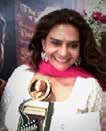
Barkhaa Roy comes from an illustrious lm family. She started her career at a young age and produced several feature lms including the blockbuster Sanam Teri Kasam. She also produced shows for mainstream television. She is the co-author of a biography of the legendary actress, Meena Kumari, and is presently working on a feature lm based on it. She is also working on a docu-feature on the iconic writer Amrita
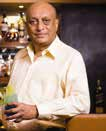
Bhaichand Patel was on the sta of the United Nations at its headquarters in New York for twenty-six years and retired as Director. In August this year he was the president of the jury that gave the International Critics Prize at the Locarno International Film Festival in Switzerland. He is the author of four books: Chasing the Good Life, Penguin Book of Cocktails,Superstars of Bollywood and a best-selling novel, Mothers, Lovers and Strangers. In one of his last published interviews, Khushwant Singh said that Bhaichand Patel was one of his three favourite writers.
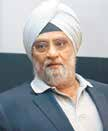
Bishen Singh Bedi played Test cricket for India from 1966 to 1979 and formed part of the famous Indian spin quartet. He also captained the national side in twenty-two Test matches. Bedi wore a colourful patka and has voiced outspoken and forthright views on cricketing ma ers. His connection with Khushwant Singh were the santabanta jokes they exchanged regularly.
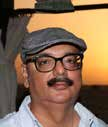
Bob Rupani is one of India’s most senior and respected auto journalists. He has edited magazines such as Car & Bike International, Auto Motor & Sport, BBC Top Gear India and Auto India. Presently he is consulting editor ofOverdrive Auto Media. He has authored the bestseller Driving Holidays in India and other acclaimed books likeMore Driving Holidays in India; India’s 100 Best Destinations; Tracking the Tiger: 50 Days in India’s Best Tiger Reserves; Living the Royal Life and e Royal Udaipur Rolls-Royce. He has also co-authored a book on Mercedes-Benz, called Story of the Star in India, with Gautam Sen. Rupani has successfully participated in several races and rallies and is a founder member of the prestigious ICOTY (Indian Car of the Year) award. He is also currently the chairman of the jury.
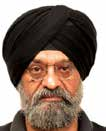
Bobby Bedi has produced feature lms (Bandit Queen, Fire, Saathiya, Maqbool, Mangal Pandey, Train to Pakistan) and wri en as well as directed documentaries (Kehta Hai Joker, on the life of Raj Kapoor) Ladkiyan (six short stories on the girl child). His rst feature screenplay, Laajo, was based on Ismat Chugtai’s ‘Gharwali’. Bobby has been on the governing and academic councils of the FTII and is frequently invited to speak on IPR and Anti-piracy forums including WIPO.
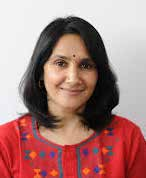
Chander Suta Dogra Chander Suta Dogra is a journalist and author who writes on politics and governance, gender, society and human rights. She has worked with the Hindu, e Indian Express and e Hindustan Times and is currently with Outlook magazine, where she has worked for over ten years. Two years ago she wrote a book Manoj and Babli: A Hate Story (Penguin India), which is a true account of an honour killing and its a ermath. e book has been a commercial and critical success and has been translated into Hindi and Japanese. Chander Suta is married to an army o cer and her son is a helicopter pilot with the Indian Air Force.
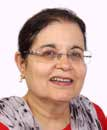
Coomi Kapoor has been a political journalist for more than four decades, and is currently consulting editor at the Indian Expresswhere her column ‘Inside Track’ appears on Sundays. During her long career she has worked in numerous publications. She was a reporter in the Motherland, chief reporter in the Indian Express, Delhi, special correspondent the Indian Express, principal correspondent India Today, editor news Sunday Mail, bureau chief the Indian Post, political editor Illustrated Weekly and resident editor Indian Express, Delhi. She is the author of e Emergency: A Personal History (Penguin India, 2015).
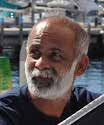
Cdr Dilip Donde In 2010 Cdr Dilip Donde sailed into Indian maritime history by successfully completing the rst solo circumnavigation under sail by an Indian in an Indian- built boat. Five years later he published his book e First Indian which chronicled his progress over four years, from building a suitable boat with an Indian boat-builder, weaving his way through a ‹sea-blind› and o en quixotic bureaucracy, training himself with no precedent or knowledge base in the country around the world. On completion of his path- breaking voyage, and nally sailing solo he continued sailing and grooming the next generation. He participated in two races from Cape Town to Rio and, more recently, the Transatlantic race 2015. He is the recipient of the Tenzing Norgay National Adventure Award, the Shaurya Chakra, the MacGregor Medal and the National Maritime Achievement Award.
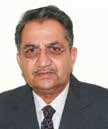
Dr Chiranjit Parmar, 76, is a fruit scientist known internationally for his work on wild growing, lesser known and unexploited fruits. He has published hundreds of articles and cartoon strips on fruits in Indian and foreign magazines and newspapers. He has also published a book on Himalayan wild fruits. For the last six years, he has been compiling Fruitipedia, an online encyclopedia of edible fruits of the world. Dr Parmar is very widely travelled. He is now documenting his experiences in the blog AROUND THE WORLD FOR FRUITS, FRIENDS AND NEW EXPERIENCES, available at the link, h p://fruitipedia.blogspot.in/.
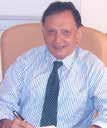
Dr Farokh Erach Udwadia is a legend in the eld of medicine. He is patron and president of several medical bodies and is the youngest Indian to have been elected a Fellow of the Royal College of Physicians of Edinburgh, at the age of 38. He was also a Master Fellow of the International and American College Chest Physicians in 1997 – the only Indian and second Asian to be conferred this award. In 1977 he was appointed consultant physician to the Governor of Maharashtra. Dr Udwadia is the author of several highly acclaimed medical books, as also books on medicine that would interest a layperson. Some of these are Man and Medicine: A History, Bedside Clinics in Medicine and e Forgo en Art of Healing and Other Essays. He has contributed to several international text books on medicine and over y international and national journals. He is also the recipient of several prestigious awards including the Padma Bhushan, Giants International Award for Excellence and Dhanvantari Award.
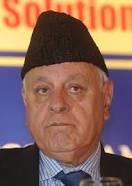
Dr Farooq Abdullah has served as the chief minister of Jammu and Kashmir many times since 1982. He was a Cabinet minister in the UPA government and in 2002 he became a member of the Rajya Sabha. He is also the president of the Jammu & Kashmir National Conference, a state political party that was founded in 1937. He was honoured with the B.C. Roy National Award in 1999.
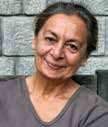
Dr Kalpana Sahni is a scholar who has authored many books on literature and culture. She is known for her research work on Tolstoy, Bulgakov, Russian Orientalism and cross- cultural studies. Professor Sahni was the head of the centre of Russian studies at Jawaharlal Nehru University in New Delhi.
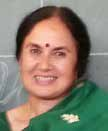
Dr Pankaj Singh Academic, critic, editor and translator, Pankaj K. Singh retired as Professor of English from Himachal Pradesh University, Shimla. A former fellow of the Indian Institute of Advanced Study, she has been a visiting fellow at several universities abroad, and has published extensively on gender issues, modern drama, new literatures, cultural studies and translation. Founding editor of Indian Journal of Australian Studies, she has translated works by Bhisham Sahni, Balwant Gargi, Atamjit, Rashmi Bajaj and others into English. She has recently completed a Hindi translation of Bhisham Sahni’s literary autobiography in Punjabi, Meri Sahit Yatra.
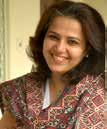
Dr Rakhshanda Jalil is a well-known writer, critic and literary historian. She is best known for a much-acclaimed book on Delhi’s lesser-known monuments called Invisible City: e hidden Monuments of India and a well-received collection of short stories, called Release and Other Stories. Her PhD.
on the Progressive Writers’ Movement as Re ected in Urdu Literature has been published by Oxford University Press as Liking Progress, Loving Change. Her translations of short stories by Premchand and Intizar Husain have been published as e Temple and the Mosque and e Death of Sheherzad respectively. Rakhshanda Jalil runs an organization called Hindustani Awaaz, devoted to the popularization of Hindi-Urdu literature and culture.
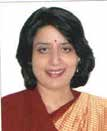
Dr Sumita Misra was born and studied in Lucknow. A er a masters in economics from Lucknow University, she joined the Indian Administrative Service in 1990. She has been serving in various administrative positions in Haryana since then. Poetry, in English, Urdu and Hindi, has been an abiding love. Her poems have been published in leading popular and literary journals. Her rst book of poetry A Life of Light was published in 2011 with a foreword by Khushwant Singh. The language and sensibilities of her hometown Lucknow surfaced in Zara si Dhoop, her second book of poems, in Urdu and Hindi. She is the founder chairperson of the Chandigarh Literary Society and the director of Literati, the Chandigarh Litfest organized ever year in November by the Chandigarh Literary Society. She is currently Principal Secretary, Departments of Tourism and Science & Technology, Government of Haryana. Travel, environmental protection, gender and photography are other interests. Her next books Petrichor and Other Poems and Andekhe Khwaab are likely to be published in early 2016. She lives in Chandigarh with her husband Paramjeit and two college- going daughters.
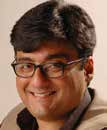
Fahad Samar is the bestselling author of Scandal Point and Flash Point, the rst two novels in his Mumbai trilogy published by HarperCollins in 2014 and 2015. He studied at Bombay International School and at St. Xavier’s College, Mumbai, from where he graduated with a degree in English literature. He began his career as a lmmaker with Merchant-Ivory Productions in 1987. In 1993, Fahad established his company, Bombay Talkie, and has since wri en, directed and produced scores of commercials, documentaries, corporate lms and TV shows. A pioneer in youth culture programming in India, he has directed cult TV shows like BPL OYE!, Superhit Muqabla and e Poppadum Show. Fahad is a well-known social commentator and has regularly contributed columns to the Mumbai Mirror, DNAand the Indian Express over the past ten years. He also writes on food, wine and travel for Upper Crust magazine. his articles and essays have appeared in Elle, Harper’s Bazaar and Conde Nast Traveller among other publications. He is also a lm critic and presents a weekly TV show, Friday Double Bill, on NDTV Prime and Filmology with Fahad Samar on Radio One 94.3FM. Fahad lives in Mumbai with his wife, Simone Singh.
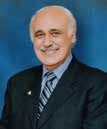
Fakir Aijazuddin is one of Pakistan’s leading scholars and art-historians whose specialty has been the history of the Punjab. He belongs to the famous Fakir family of Lahore which achieved considerable prominence during the reign of Maharaja Ranjit Singh.
Aijazuddin has published a number of books on this period of Punjab history. The first was Pahari Paintings and Sikh Portraits in the Lahore Museum (1977), a catalogue of the miniature paintings collection in the Lahore Museum. The counterpart to it is in the Government Museum & Art Gallery, Chandigarh.
His second book Sikh Portraits by European Artists (1979) was a biographical study of the paintings in the Princes s Bamba Collection, Lahore Fort. The collection had once belonged to Maharaja Duleep Singh.
Amongst his other books are two books on Lahore, one on rare maps of Pakistan, an account of Henry Kissinger’s secret visit to China in 1971, another on US-Pakistan diplomatic relations between 1969 and 1974, two books on his alma mater Aitchsion College, Lahore, to commemorate its centenary (1986) and its 125th anniversary (2011).
He is a regular columnist for Pakistan’s leading daily DAWN.
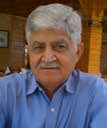
General V.P. Malik was Chief of the Indian Army from 1 Oct 1997 to 30 September 2000. Concurrently, he was Chairman, Chiefs of Sta Commi ee of India from 1 January 1999 to 30 September 2000. He coordinated and oversaw the planning and execution of Operation Vijay to successfully defeat Pakistan’s a empted intrusion in Kargil sector in 1999. General Malik was awarded the Param Vishishta Seva Medal for distinguished services in 1996; ‘Excellence in Leadership’ award by Atur Foundation, Pune; ‘Distinguished Fellowship’ by the Institute of Directors, New Delhi; and ‘Pride of the Nation’ award by Doon Citizens’ Council in July 2000.
Apart from writing ‘opinion’ columns in newspapers and professional magazines, he has wri en several papers on defence planning and security issues and authored two books: Kargil: From Surprise to Victory and India’s Military Con icts and Diplomacy: An Inside View of Decision Making (both published by HarperCollins India). Post retirement, he was nominated as a member of the National Security Advisory Board for two terms. He is also on the board of some well-known multinational companies as an advisor/independent director.
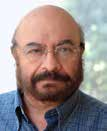
Govind Nihalani is one of India’s best-known cinematographers and lm makers. He has to his credit seventeen feature lms as Director-Cinematographer including Aakrosh, Ardh Satya, Tamas, Hazaar Chaurasi ki Maa, Deham and Dev. His lms have won twelve National Awards in various categories in addition to several awards at international lm festivals. Tamas alone received three national awards including the Nargis Du Award for the best lm on national integration. Nihalani received the National Award for the best cinematography for his work on Junoon by lm-maker Shyam Benegal.
He was also the second unit director and cameraman on Richard A enborough’s lm Gandhi. He has served as a member of the feature lm jury at Montreal, Pyong Yang and Damascus, the Bangkok International Film Festival and Laddakh International Film Festival. His current production is an animated (CGI, 3D) feature lm Kamlu, which is wri en, produced and directed by him. In 2002, he was conferred the Padmashri by the President of India for outstanding contribution to Indian cinema.

J.D. Ghai Born in 1968 in Ludhiana, Jiwandeep Singh Ghai did his B.Com from Panjab University, Chandigarh and his MBA from Punjabi University, Patiala. His passion for humour motivated him to found SantaBanta.com in the year 1999. His dedication and perseverance have made SantaBanta.Com one of the top entertainment portals in the world, enjoying more than 150 million monthly page views. Currently, he is the Chairman and CEO of SantaBanta.com Ltd as well as of several other companies.
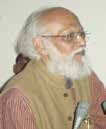
Jatin Das studied art at Sir JJ School of Art in Mumbai.
He has held 68 one-man shows and participated in group exhibitions in India and overseas. He participated in Paris Biennale, 1971, Venice Biennale, 1978 and India Triennale, 1971, 1976 and 1978. He has executed many murals and sculptures and set up the JD Centre of Art in Bhubaneswar, Odisha, 1997. His large collection of hand fans (pankha) will be donated to the proposed National Pankha Museum in Delhi. He was awarded the Padma Bhushan by the President of India in 2012.
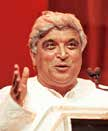
Javed Akhtar is easily India’s best-known script writer, lyricist and poet. He has won several national lm awards as well as seven Filmfare awards. He has also been honoured with the Padma Shri and the Padma Bhushan by the President of India. He has published several bestselling collections of poetry including Tarkash, Quiver and In His Own Words. In 2013, he received the Sahitya Akademi Award for his collection Lava.
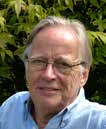
John Elliott is a former Financial Times journalist, who has been in South Asia for over twenty years and also wri en for e Economist, the New Statesman, and Fortune magazine. His prize-winning book Implosion: India’s Tryst with Reality has been issued as an updated 2015 paperback, and will soon be available world-wide. Based in New Delhi, he writes a blog on South Asia current a airs called ‘Riding the Elephant’ that also appears on the websites of Newsweek (US), Independent (UK), and Asia Sentinel (Hong Kong).
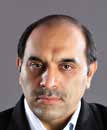
Juggi Bhasin was one of the rst television journalists
in India and has landmark coverage to his credit including the demolition of the Babri Masjid in 1992 and the coverage of the worst period in Kashmir’s militancy and insurgency. He was the lead anchor for Lok Sabha TV when it was rst launched. He made his debut as a writer in 2012 with the critically acclaimed and successful thriller, e Terrorist, which was followed a year later by e Avenger, both published by Penguin India. Blood Song is his third book in the series. Juggi Bhasin is also a stage actor.
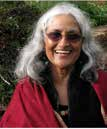
Kamla K. Kapur was born and raised in India and studied in the US. Her writing has included plays, novels, poetry, essays and reimaging Indian spiritual writings. Her critically acclaimed books include Ganesha Goes to Lunch: Classics om Mystic India (2007, Mandala, USA; retitled Classic Tales om Mystic India, Jaico Publishing, 2013); Rumi’s Tales om the Silk Road, Pilgrimage to Paradise (Mandala, USA and Penguin India, 2009). Her new book, e Singing Guru, on the legends of Guru Nanak, was published by Mandala in 2015. Her highly praised books of poetry are As a Fountain in a Garden (Tarang Press, 2005) and Radha Sings (Dark Child Press, 1987). In 1977 she won the Sultan Padamsee Award for two of her plays: the second prize in the full-length category for Kaamiya, and the rst prize in the one-act category for Zanana. e New Mexico Arts Division selected her as the Playwright in Residence for two years in 1985.

Karan Thapar Winner of the Indian Express Journalist of the Year (Broadcast) award for 2007-08, Karan apar is head of Infotainment Television (ITV), a production house that makes programmes for the BBC, Channel NewsAsia, CNBC, CNN-IBN and Doordarshan. Before his return to India in I991, apar worked with London Weekend Television and for Times (UK). He is the youngest child of General P.N. apar and Mrs Bimla apar.
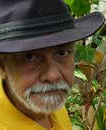
Ketan Anand graduated from St. Stephen’s College in 1968 and joined his father Chetan Anand to learn and work in the lm industry, as associate producer of Heer Raanjha. Subsequently he directed four independent lms and two TV serials, which he also produced, and also directed Paramveer Chakra, produced by Chetan Anand. He co-authored with his mother Uma Anand a biography of Chetan Anand titled Chetan Anand: the Poetics of Film and made a documentary of the same name for his tenth death anniversary in 2007. He is now in the process of starting a feature lm for his home production company Himalaya Films Media Entertainment.
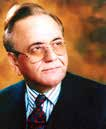
Khurshid Kasuri was foreign minister of Pakistan
for ve years from November 2002 to November 2007. He believes in a pluralistic, progressive and inclusive Pakistan and resigned when the former PML(N) government announced the 15th Amendment/Shariat Bill which negated those values. Maximum progress was made on the peace process with India during his tenure, including a back channel formula on Kashmir. He is currently Chairman Kashmir Commi Tehreek-e-Insaf and has just launched his book on Pakistan’s foreign policy, Neither A Hawk, Nor A Dove.
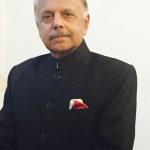
Lt General Kamal Davar is one of India’s distinguished soldiers and military thinkers. He has seen operational service in all theatres of operations in India. He was also wounded in action in the 1965 operations against Pakistan. Was the first Armoured Corps officer to be posted as GOC Ladakh. He has served in Iraq during the Iran-Iraq war and is widely travelled.
The General commanded 11 Corps responsible for the defence of Punjab and after a short stint as DG Mechanised Forces was specially selected by the then government to raise the Defence Intelligence Agency after the Kargil War. He is known to have taken many intelligence initiatives during his tenure both in India and abroad. For his exceptional services to the nation, the General was awarded the AVSM and PVSM respectively.
After retirement, the General has settled in Kasauli and is a widely known prolific writer on security and strategic matters with his commentaries and articles frequently coming in the national media and military journals.. He is also called upon by many institutions, both military and civil, including abroad, to address them on various security and geopolitical matters
The General is a keen environmentalist and also involved in educational initiatives locally. He has been involved with the KS Litfest since its inception.
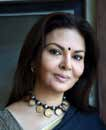
Malavika Sangghvi is a journalist, editor, author
and columnist with over three decades of experience in the media. She has edited some of the country’s largest circulated newspapers and wri en for its most respected international journals like the New York Times and the Sunday Times (UK). She has been responsible for creating a number of media trends in the process, and has been regarded as a pioneer in lifestyle journalism. She has been on the founding team of papers such as Midday, e Bombay Times and DNA.
Spirited Souls, her book on Mumbai’s outstanding women, was commissioned by the Indian Merchants’ Chamber. It pro led over twenty exceptional women and is regarded as a benchmark on the subject. She has also edited a book on her mother’s iconic café, ‘ e Samovar’. She is a published poet and author and currently writes a popular daily weekday column for the Midday, ‘Malavika’s Mumbai’. She is also a consulting editor for Business Standard.
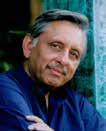
Mani Shankar Aiyar was educated at e Doon School, St. Stephen’s and Trinity Hall, Cambridge. He was elected an Honorary Fellow of his Cambridge college in 2010. He joined the Indian Foreign Service in 1963 and a er serving in Brussels (twice), Hanoi, Baghdad and Karachi, was seconded to the Prime Minister’s O ce in 1985, from where he resigned in 1989 to take up a career in politics and the media, encouraged by the warm relationship he had by then developed with Rajiv Gandhi. He was elected thrice to the Lok Sabha from Mayiladuturai, Tamil Nadu and was a Cabinet minister for ve years (2004-09). Since 2010, he has been serving as a nominated member of the Rajya Sabha, a liated to the Congress party. His twin passions are Pakistan and the Panchayat Raj.

Mehr Tarar is a Pakistani journalist.
A graduate of West Virginia University, she is the author of Leaves From Lahore.
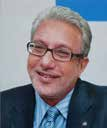
Mir Jaffar Imam A social scientist who specialises in human relations and industrial communications, Mir Ja ar Imam has occupied senior executive positions in national and international rms and is on the board of several companies. Extensively travelled, his professional roots are deeply entrenched in the corporate world. An industrial consultant by profession, he has a passion for Urdu and English literature, besides a keen interest in art and poetry. He hails from the erstwhile ruling family of Kamadhia,in Gujarat, and is a scion of H. H. Nawab Mir Jafur Ali Khan of Surat. He is the author of Mirza Ghalib and the Mirs of Gujarat and For the Love of e Mahatma. He has spoken on Rumi and Ghalib on several platforms all over India. At present he is engaged in two new projects: acommentary on Rumi’s poetry and the Su s of Gujarat. He lives between Mumbai and London.
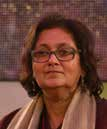
Namita Gokhale is a writer, publisher and festival director. She has wri en twelve books including seven works of ction including Paro: Dreams of Passion, Gods Graves and Grandmother, A Himalayan Love Story, e Book of Shadows, Shakuntala: the Play of Memory, and Priya In Incredible Indyaa. She has wri en extensively on Indian mythology including the landmark anthology, In Search of Sita, e Book of Shiva and e Mahabharata for young readers. Gokhale is passionately
concerned with showcasing the Indian languages. She is a founder and co-director of the Jaipur Literature Festival and of Mountain Echoes: the Bhutan Literary Festival.
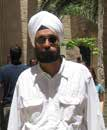
Navtej Sarna is the author most recently of Indians at Herod’s Gate, a historical travel narrative on India and Jerusalem. His works include the novels e Exile and We Weren’t Lovers Like at; the non- ction works e Book of Nanak and Folk Tales of Poland; the short-story collection Winter Evenings; and the translations Zafarnama and Savage Harvest. He has contributed regularly to Times Literary Supplement and several other journals. A new book, Second oughts: On Books, Authors and the Writerly Life, is due to be published in November 2015. A member of the Indian Foreign Service since 1980, he has served as a diplomat in several capitals, as the Foreign O ce spokesperson and as India’s ambassador to Israel. He is presently Secretary in India’s Foreign O ce.
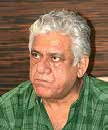
Om Rajesh Puri OBE is a graduate of the Film and Television Institute of India, Pune, and an alumnus of the 1973 class of theNational School of Drama. He made his lm debut in the 1976 Marathi lm Ghashiram Kotwal. He was critically acclaimed for his performances in many unconventional roles in lms such as Bhukmika, Aakrosh, Mirch Masala and Ardh Satya, for which he got the National Film Award for Best Actor. He has also acted in several international productions including Gandhi, East is East and e Hundred- Foot Journey. He has been awarded the Padma Shri by the President of India. Puri had a cameo in the highly acclaimed lm Gandhi (1982, directed by Richard A enborough). In the mid-1990s, he diversi ed to play character roles in mainstream Hindi cinema, where his roles are more tuned to mass audiences than lm critics. He became known internationally by starring in many British lms such as My Son the Fanatic (1997), East Is East (1999) and e Parole O cer (2001). He appeared in Hollywood lms including City of Joy (1992), opposite Patrick Swayze; Wolf (1994) alongside Jack Nicholson; and e Ghost and the Darkness (1996) opposite Val Kilmer. In 2007, he appeared as General Zia-ul-Haq in Charlie Wilson’s War, which stars Tom Hanks and Julia Roberts. He has worked in Hindi television serials like Kakkaji Kaheen (1988) (roughly meaning «Uncle says») as a paan-chewing ‘Kakkaji’, which was a parody on politicians, and Mr. Yogi (1989) as a suave ‹Sutradhaar’ who enjoys pulling the protagonist’s leg. ese two serials underlined Om Puri’s versatility as a comedian. He received critical acclaim for him performance in Govind Nihalani’s television lm Tamas(1987) based on a Hindi novel of the same name. He played comic roles in Hindi lms like Jaane Bhi Do Yaaro which reached a cult status, followed by Chachi 420 (1997), Hera Pheri (2000), Chor Machaye Shor (2002) and Malamaal Weekly (2006). His more recent Hindi lm roles include Singh Is Kinng, Mere Baap Pehle Aap and Billu. Puri was seen in the role of Mohammad Ali Kasuri in Road to Sangam (2009). In 2010, he appeared in e Hangman. In 2011 he was in the Indian action movie Don 2. He has also worked in Aahat TV Series in some episodes during second season which was aired between 2004-2005 on Sony channel. Om Puri would be seen on small screen in a crime show Savdhan India’s second season on Life OK.[7] In 2014, he appeared opposite Helen Mirren.
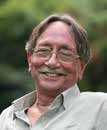
Paran Dulat (A S dulat) Amarjit Singh Dulat is the author of the recent bestseller, Kashmir: e Vajpayee Years. He served as the head of the Research and Analysis Wing (R&AW), India’s spy agency, under Prime Minister Atal Bihari Vajpayee. He later joined Vajpayee’s Prime Minister’s O ce (PMO), where his job was to ‘monitor, manage and direct’ the government of India’s peace initiative in Kashmir. Dulat was born in Sialkot, Punjab, in December 1940. With India’s Partition, his father, Justice Shamsher Singh Dulat, ICS, was posted to Delhi. Dulat was educated at Bishop Co on School, Shimla, and Punjab University, Chandigarh, a er which he joined the Indian Police Service (IPS) in 1965, and then the Intelligence Bureau (IB) in 1969, where he served for almost thirty years. At IB he headed the Kashmir Group during the turbulent 1990s till he joined and headed R&AW. Since leaving the government in 2004, he has been active on the track two circuit. During service, he accumulated a vast reservoir of goodwill with Kashmiris of all shades. As Jane’s Intelligence Digest put it in 2001, ‘Well known for his social skills, Dulat prefers dialogue to clandestine manoeuvres’.
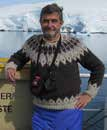
Prabhu Ghate has travelled to over a hundred countries, mostly the hard way, as the title of his recent book By umb, Hoof, and Wheel: Travels in the Global South suggests. By the age of seven he had already done ve ocean voyages and spent three days in a ying boat. His last few trips were to Madagascar, Colombia, Iran and China, where he spent six weeks travelling by train and bus along the Silk Road and in the Tibetan regions of the country. When not travelling in India or abroad, he divides his time between Delhi and Pachmarhi in Madhya Pradesh.
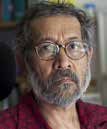
Pradip Krishen taught history at a Delhi University college before teaching himself how to make documentary lms in the mid-1970s. He turned to ction a few years later and directed 3 feature- lms: Massey Sahib (1985), In Which Annie Gives It ose Ones (1988), and Electric Moon (1992). He decided to stop making lms in 1994 and tried – unsuccessfully – to become an ecological planner for a small, beautiful li le town called Pachmarhi, in south-eastern Madhya Pradesh. From 1997 onwards, he taught himself about trees and plants and wrote two books: Trees of Delhi (2006) and Jungle Trees of Central India (2014). He calls himself an ‘ecological gardener’ and works with native plants in di erent kinds of lansdcapes ranging from the western desert to temperate Himalayan ecosystems. He rst created and now directs the ‘rewilding’ work in Rao Jodha Desert Rock Park in Jodhpur (since 2006), as well as a few other gardens in di erent kinds of ecologies.
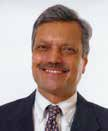
Pradip Shah, the founder of Ind Asia, a corporate nance and investment advisory company, is a gold-medallist chartered accountant, management accountant and MBA from Harvard, who was involved in establishing HDFC, the rst retail housing nance company in India; CRISIL, the rst and largest credit rating agency in India; the Indocean Fund, a pioneer private equity fund; the AMP-IndAsia India Fund; Universal Trustees, for estate planning and trusts; and Grow-Trees.com, a social enterprise. He has served on several expert commi ees of state and central governments, and is chairman or director of various companies in India and abroad. He also sits on the governing boards of some non-profit organizations and chambers of commerce.
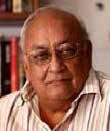
Prem Shankar Jha has been editor of the Financial Express and the Hindustan Times, economic editor of the
Times of India, columnist for e Hindu and Outlook, and correspondent of e Economist for India. He has wri en several books, notably India: A Political Economy of Stagnation (OUP 1980); Kashmir 1947: e Origins of a Dispute ( OUP, 2001); Twilight of the Nation State: Globalisation, Chaos and War (Sage, 2006) and Crouching Dragon, Hidden Tiger: Can China and India dominate the West? (Penguin, 2010). In 1990 he was media adviser to Prime Minister V.P Singh.
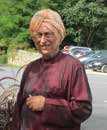
Preminder Singh Pami, as he is popularly known, is Chairman Board of Directors, Sir Sobha Singh & Sons Pvt Ltd. and Chairman Board of Trustees, Sir Sobha Singh Public Charitable Trust. He is also on the Board of Trustees Modern School and Member Managing Commi ee, Vasant Vihar Modern School, New Delhi; Managing Trustee Amarjit Bhagwant Singh Charitable Trust e A ic Delhi, an organization for the promotion of Indian music, dance and culture. Pami is an entrepreneur, having started and managed e Cellar, India’s rst discotheque, as early as 1968. He also started and managed e Shop, Retail and Export, New Delhi, and runs a manufacturing and printing unit for textiles. Pami graduated from Lawrence School, Sanawar, St Stephens Delhi and then Hendon College of Technology, London.
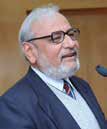
Prof. Harish Trivedi, former Professor of English at the University of Delhi, earlier taught at St Stephen’s College, Delhi, and at the universities of Chicago and London. He is the author of Colonial Transactions: English Literature and India, and has also published on postcolonialism, translation studies, comparative literature and world literature. He translated a biography of Premchand from Hindi into English, and edited Tess by omas Hardy (Oxford University Press) and Kim by Kipling (Penguin Classics).
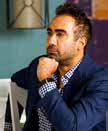
Ranvir Shorey is one of the more talented and versatile actors in the Hindi lm industry whose work has been appreciated by critics as well as the audience. As the son of a Hindi lm producer, he grew up on the fringes of the Mumbai lm industry. He has a diploma in lm/ video production from St Xavier’s Institute of Communication. He also holds a diploma in digital lm from the Digital Film Academy, New York, and studied acting at the Atlantic eatre Company, also in New York. He started his career in television as a video jockey on the immensely popular Channel [V]. erea er, he was one of the lead actors in e Great Indian Comedy Show on Star TV. He co-hosted the successful talk show Ranvir Vinay Aur Kaun..? He made his lm debut opposite Manisha Koirala in the lm Ek Chhoti si Love Story in 2002. His next lm, Jism, in which he had a supporting role, was a hit. It was not until 2006 that he got noticed in the comedy Khosla Ka Ghosla. e lm received much acclaim, and his role was praised by all. e same year, he played Nanoo in the comedy Pyaar Ke Side E e s and appeared in the successful Honeymoon Travels Pvt. Ltd. Subsequently he has acted with Madhuri Dixit; been in movies like Ugly Aur Pagli, the box o ce hit Singh Is Kinng, and Ek a Tiger along with Salman Khan, and many more.
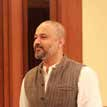
Ravi Singh is the publishing director of Speaking Tiger Books. Before this, he was publisher and editor-in-chief, Penguin Books India and co-publisher, Aleph Book Company.
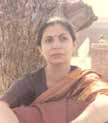
Rinki Roy Bhattacharya was born with cinema in her veins. Her journalistic journey began when she was in her twenties.
She led features on cinema, investigative reports about new wave directors, interviews with eminent lm makers and artists; Satyajit Ray, Costa Gavras, Carlo Ponti, Toshiro Mifune, Victor Bannerjee. She designed sets and costumes, subtitled lms by Satyajit Ray, Mrinal Sen, Aparna Sen and Rituporno Ghosh. Her non- ction works include A Man of Silence, Behind Closed Doors, Janani, e Man Who Spoke in Pictures and Madhumati. In 1985 Rinki founded the HELP NGO to support women in distress and made a documentary Char Ddiwari on domestic violence. She is the founder chairperson of the Bimal Roy lm society.
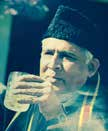
Robin Gupta was a member of the Indian Administrative Service and retired as Financial Commissioner, Punjab. He is the author of And What Remains in the End.
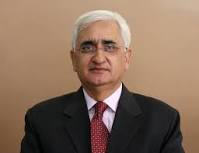
Salman Khurshid is a lawyer and writer who has been elected to the Indian Parliament from the Farrukhabad Lok Sabha constituency. He became the Union Deputy Minister of Commerce in June 1991, and was Union Minister of State for External A airs from 1993 to 1996. He has authored several books, including At Home in India: A Restatement of Indian Muslims, If Winter Comes and Beyond Terrorism. He is president and chairman of numerous educational trusts such as Delhi Public School and Dr Zakir Hussain Memorial Trust and College, and Member of the Governing Body, Mayo College.
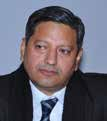
Sanjeev Chopra is a civil servant with over thirty years’ experience at apex level positions in the state and central governments. Prior to joining the IAS, he worked for the
Times of India and e Economic Times. A recipient of the Hubert H Humphrey and McNamara Fellowships, he leads
the book readings at the Civil Services Institute, New Delhi. Very fond of reading and reviewing ooks, he writes regularly on development issues in leading Indian newspapers of the country.
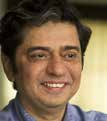
Santosh Desai is an author, columnist and media critic. His rst book on contemporary India, Mother Pious Lady: Making Sense of Everyday India, is a collection of essays that traces the evolution of middle-class India over the last two decades. In his professional life, Santosh heads a brand and consumer consultancy company and has previously headed an advertising agency. His principal area of interest lies in examining the evolving nature of consumer culture in India. He writes regularly, with a weekly column for the Times of India.
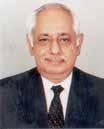
Ambassador Satinder Kumar Lambah is Chairman, Ananta Aspen. He has held several positions in his illustrious career spanning almost ve decades. He has been Special Envoy to the Prime Minister, Co-Chairman of the Task Force on National Security, President of Association of Indian Diplomats, President of the Federation of Indo-German Societies in India, and Ambassador to Russia, FRG, Hungary, as well as High Commissioner of India to Pakistan. He was Deputy Secretary General of the 7th Non Aligned Summit held in Delhi in 1983 and later Coordinator of the Commonwealth Heads of Governments meeting in India. During his tenure as Consul General of India in San Francisco (1989-91) he was He is married to Nilima Lambah, author of A Life Across ree Continents – Recollections of a Diplomat’s Wife. ey have two children.
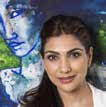
Shunali Khullar Shroff has worked variously as a journalist, a corporate communications professional and the owner of a successful PR firm. Two kids later, her previous avatar as a career woman is but a faint memory. Shunali took to writing her now widely read blog in order to hear herself think. She has authored the bestselling book Ba le Hymn of a Bewildered Mother (Hay House, 2015) and is a columnist for the CondeNastTraveller. Shunali lives in Mumbai with her husband, two daughters, a geriatric dog, and his juvenile female companion.

Simone Singh is a film and television actor and has won numerous awards for her roles in lms such as Sur andBeing Cyrus and television shows like Heena and Ek Hasina i. She has hosted her own chat shows on Star Plus, MSNBC and ET NOW and is the rst Indian television personality invited to present at the International Emmy Awards in New York. In addition to anchoring live events, Simone writes for various publications like Vogue andElle on food, travel, health and holistic well-being. She has also been a brand consultant for Hindustan Unilever Limited. Simone lives in Mumbai with her husband Fahad Samar.
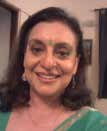
Sohaila Kapur is a reputed New Delhi-based journalist, playwright, TV anchor and producer, theatre producer,
actor and director. She has authored a sociological study of esoteric rites titled Witchcra in We ern India. As a journalist she has wri en some 100 articles for mainstream papers. As an actor she has worked in several theatrical productions, an award-winning National Geographic Channel documentary, three feature lms (one of them a National Award winning production) and as a director, her plays have travelled to three continents. Sohaila has been part of the expert commi ee for the Ministry of Culture’s production grants and is also a judge for the National Television Awards. She has been awarded the Nat Samrat Best Actor Award and the Art Karat Women of Substance Award for 2013.
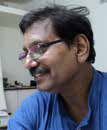
Suddhasattwa Basu is a painter, illustrator and animator. A student of Fine Arts (painting) at the Government College of Art and Cra , Kolkata, he has worked in the Design Unit of omson Press and has been closely associated with Target, the children’s magazine. His love for and keen observation of nature and landscape nd expression in To Live in Magic, a book of nature poems and prayers for children by Ruskin Bond. Most recently, he has illustrated Delhi rough the Seasons by Khushwant Singh. Suddhasa wa is the director and chief animator of Ghayab Aya, India’s rst indigenously made animation tele-serial, which was rst telecast in 1990 on Doordarshan’s national network. He lives and works in New Delhi.
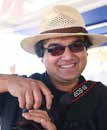
Sudeep Sen Is a major new generation voice in world literature and ‘one of the nest younger English-language poets in the international literary scene’ (BBC Radio). His prize- winning books include: Postmarked India: New & Selected Poems (HarperCollins India), Rain, Aria (A K Ramanujan Translation Award), Ladakh. He is also the editor of the HarperCollins Book of English Poetry. Blue Nude: New Poems
( Jorge Zalamea International Poetry Prize) and EroText (Penguin Random House) are forthcoming in 2016. His poetry has been translated into over 25 languages and his words have appeared in the TLS, Newsweek, Guardian, Independent, Telegraph, Herald, Harvard Review, Hindu, Times of India, Outlook, India Today, and broadcast on bbc, pbs, cnn ibn and ndtv. He is the editorial director of aark arts and the editor of Atlas. Sen is the rst Asian honoured to participate at the Nobel Laureate Week, where he delivered the Derek Walco Lecture and read from a commemorative edition of his work,Fractals: New & Selected Poems| Translations 1980-2015. In 2013, the Government of India awarded him the senior fellowship for ‘outstanding persons in the eld of culture/literature’.
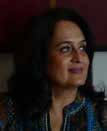
Sudha Shah was schooled in Mumbai and got her degree from Smith College, USA. Married and se led in Mumbai, she has one son. e King in Exile: e Fall of the Royal Family of Burma was published by HarperCollins India in 2012 and reprinted in 2014. e ai translation was released in October 2014 (it has reprinted four times since), the Burmese translation (currently being reprinted) in May 2015, and the Marathi translation will be released this October. e book was shortlisted for the Shakti Bha First Book Prize 2012 and the Tata Literature Live First Book Award 2012.
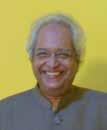
Sudhir Kakar is a distinguished psychoanalyst and writer. He has wri en seventeen highly acclaimed books of non- ction, which include, among others, e Inner World (now in its sixteenth printing since its rst publication in 1978), Shamans, Mystics and Doctors, Intimate Relations, e Colours of Violence and Young Tagore: e Makings of a Genius. He has wri en six works of ction, including e Devil Take Love (published in 2015) and his books have been translated into twenty-one languages around the world. Kakar has taught at leading institutions around the world and has won numerous accolades for his work. In February 2012, he was conferred the Order of Merit of the Federal Republic of Germany, the country’s highest civilian honour.
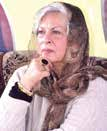
Syeda Abida Hussain was born in Lahore. Her father, Syed Abid Hussain Shah, was a member of the Legislative Assembly of undivided India and member of the rst Constituent Assembly of Pakistan a er August 1947. In 1972 Abida was elected Member Punjab Assembly and served a ve-year term. In 1979 she was elected Chair of the Jhang District Council, then re-elected to the same position in 1984. In 1985 she became the rst woman in the country’s history to be elected by popular mandate as Member National Assembly of Pakistan. In 1988 she was re-elected Member National Assembly. In 1990 Abida was appointed Minister for Information in the Government of Pakistan. From 1991 to 1993 she served as Ambassador of Pakistan to the US. In 1997 she took over as Minister for Population Welfare and Science and Technology. Abida endowed the Abid Hussain Memorial hospital at Jhang, a 50-bed health care facility for rural women. She is also sponsor of the Lahore Grammar School System which provides quality education to nearly 50,000 boys and girls all over Pakistan.
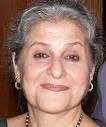
Syeda Saiyidain Hameed has wri en ction and non- ction on women’s issues, modern Indian history, South Asia and Urdu poetry. She is chancellor of Maulana Azad National Urdu University, Hyderabad and founder member of several organizations including Muslim Women’s Forum, Women’s Initiative for Peace in South Asia, South Asians for Human Rights (SAHR), and Centre for Dialogue and Reconciliation. She was a member of the Planning Commission, Government of India, the National Commission for Women, Government of India, and was awarded the Padma Shri in 2007. She co-authored Beautiful Country: Stories om Another India with Gunjan Veda and is the author of ey Hang: 12 Women in My Portrait Gallery and My Voice Shall be Heard: Status of Muslim Women, among other books.
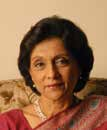
Usha Albuquerque is a gold medallist from Madras University and a nationally respected television personality, documentary lm maker and educational consultant. She has produced a range of socially relevant and educational lm programmes and worked with Doordarshan, Star TV, Radiotelevisao Portuguesa of Portugal, Brazilian TV and the World Bank, winning a National Film award and a UNICEF Child Rights award. She has been in the eld of education and career guidance for the last twenty years and pioneered it on television with two widely acclaimed TV series. She has wri en several books on Careers and Career Counselling including e Penguin India Career Guide. Among several honorary appointments, she has served as a Member on the Governing Council of Goa University, and Gargi College, Delhi University. She contributes articles and expert opinion on education and careers and is a regular columnist for national and regional dailies, television and radio channels and online sites.

Vandana Shah is an award-winning lawyer about whom the BBC has made a documentary, Invisible Women of India. She is the author of the bestselling Ex Files: e Story of My Divorce, published by Penguin under the Shobhaa De imprint. She writes on law, women’s empowerment and divorce for various publications including Hu ngton Post, Savvy and Dainik Bhaskar.
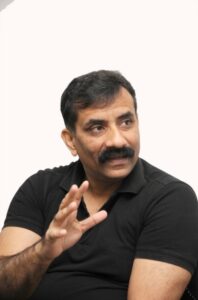
Vijai Vardhan A er graduating in History from St. Stephen’s College, Delhi University, Vijai Vardhan joined the Haryana Cadre of the Indian Administrative Service (I.A.S.) in 1985. As a voice-over artiste, he lends his voice regularly to documentary lms, theatre, social causes and poetry festivals. He gives occasional public recitals of ecstatic poetry from the world’s greatest romantic, radical and Su traditions in Hindi, English and Urdu. Deeply interested in mysticism and history, he has authored four books till now. His collection of Su haiku in English titled Beyond the Great Beyond and Ibadat: e Breath of My Soul have been greatly appreciated by critics and readers alike. His latest book Kurukshetra: Timeless Sanctity published by Wisdom Tree is a result of six years of intense research.
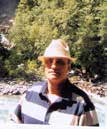
Vijay Bhushan has a master’s degree from the London School of Economics. He has been an amateur ornithologist for
almost fifty years now and was one of the earliest civil servants
in India to have written a dissertation on environmental
planning for the Indian Institute of Public Administration at
Delhi in 1979. He retired as Secretary in the Communications
Ministry of the Government of India at the end of 2004 and
was a consultant for a United Nations agency for a few years.
He has been a member of the State Wildlife Board of Himachal Pradesh since January 2010 and some of his articles on India’s natural heritage have appeared in The Tribune
as well as the WWF journal in the nineties. He is also managing trustee of the Delhibased Narain Dutt Award for the conservation of nature.
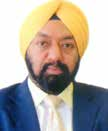
Vikramjit S. Sahney, Padma Shri, is a wellknown entrepreneur, educationist and philanthropist. He is also the chair of SAARC Chamber of Commerce and Industry (SAARC CCI); Honorary Consul General for the Republic of South Africa for Northern India; Chair BRICS agri forum and many more. He heads a successful business conglomerate that spans almost the entire globe. He is also the founder of Sun Foundation, a charitable organization.
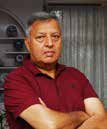
After graduation and a master’s in political science from Delhi, Virendra Capoor joined the then newly-started and now defunct e Motherland, the paper started by the Jana Sangh, the earlier avatar of the BJP. at was in 1971. ree years later, he joined the Financial Express. Five years later, he moved to the Free Press Journal as New Delhi bureau chief and later became its editor. A er nine years at FPJ, he came back to the Indian Express as editor, Express News Service.

Wajahat Habibullah, a former IAS o cer, has spent much of his career in Jammu and Kashmir, most of it in the Kashmir Valley. He served on the sta of two Indian prime ministers – Indira Gandhi and Rajiv Gandhi–as director and joint secretary respectively, and was administrator of the union territory of Lakshadweep. He held the post of minister in the Embassy of India, Washington DC, and Director, Lal Bahadur Shastri National Academy of Administration. Subsequently, he was secretary in the Department of Consumer A airs, and the ministries of textiles and Panchayati Raj. A er retiring from the service, Habibullah served as India’s rst chief information commissioner, heading the nal court of appeal under India’s Right to Information Act, and chairman, National Commission for Minorities. A former Randolph Jennings fellow at the United States Institute of Peace (2003-04), Wajahat has been awarded the Rajiv Gandhi Award for Excellence in Secularism. He is the author of My Kashmir: e Dying of the Light.
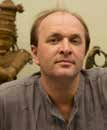
William Dalrymple was born in Scotland in 1965 and is considered the most important living exponent of Anglo- Saxon travel literature, a tradition going back to Robert Byron, Evelyn Waugh, Peter Fleming and Bruce Chatwin. He has won the omas Cook Travel Book Award, the Sunday Times Young British Writer of the Year Award, the French Prix d’Astrolabe, the Wolfson Prize for History, the Sco ish Book of the Year Award, the Du Cooper Memorial Prize, the Asia House Award for Asian Literature, the Vodafone/Crossword Award for non- ction and has, prior to the shortlisting of Return of a King, been longlisted three times for the Samuel Johnson Prize. e Italian edition of Return of a King (Il Ritorno di un Re) won the 2015 Hemingway Prize and the prestigious Kapuściński Prize for literary reportage . He lives with his wife and three children on a farm outside Delhi.
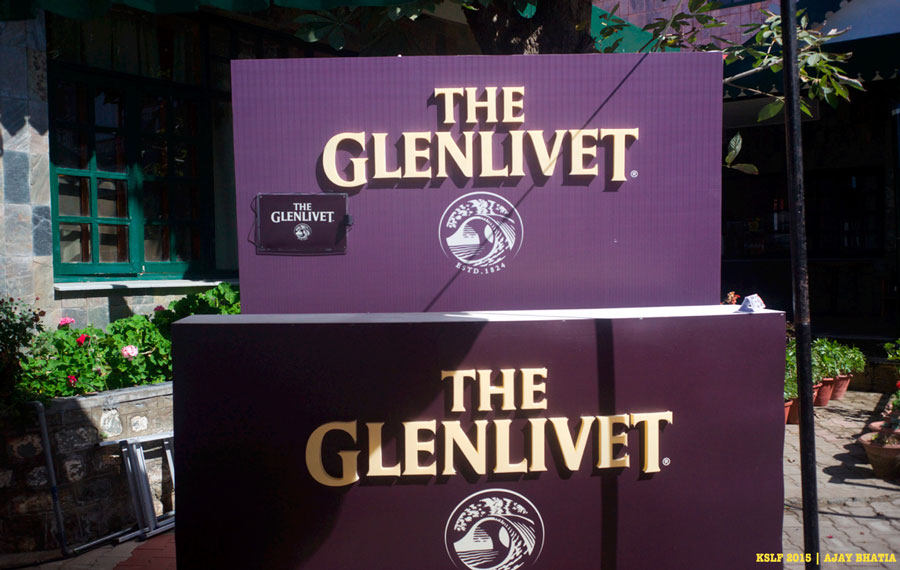
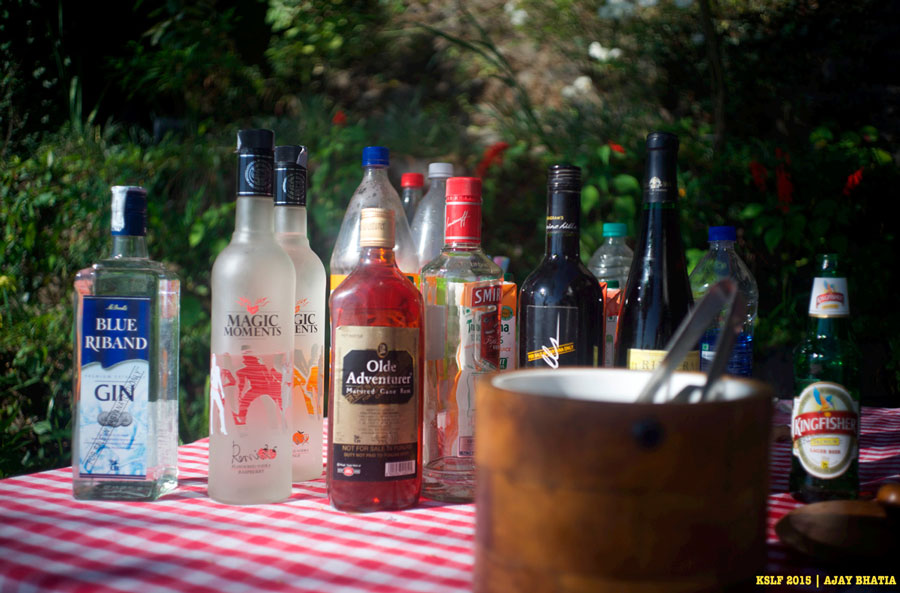
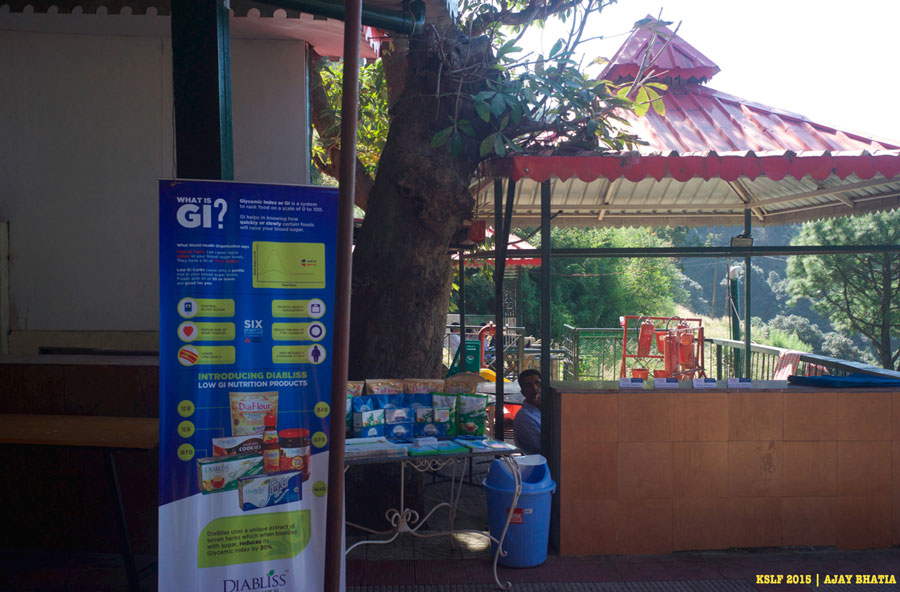
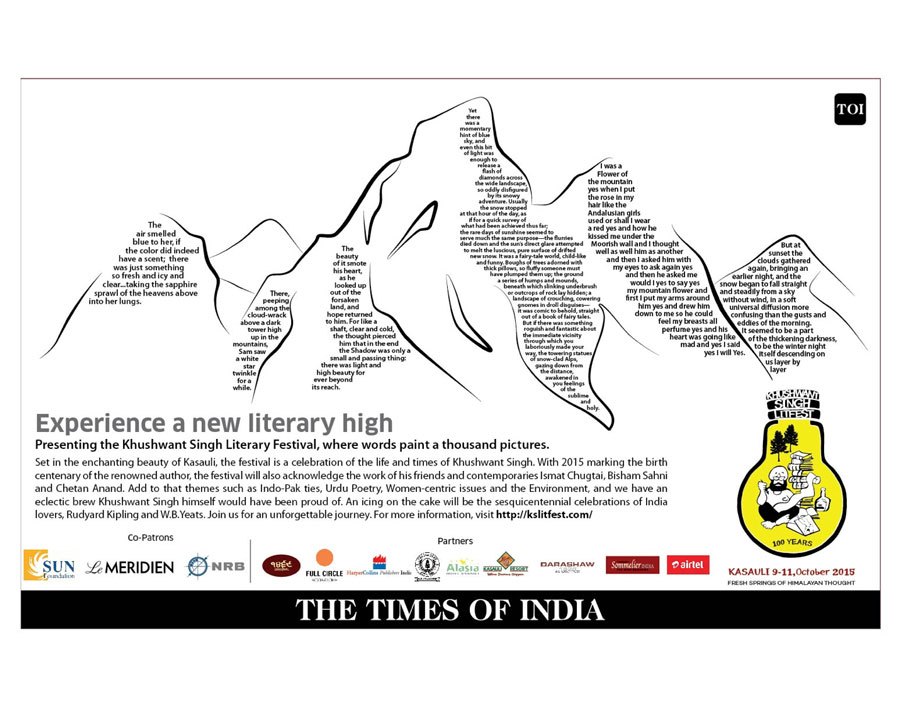
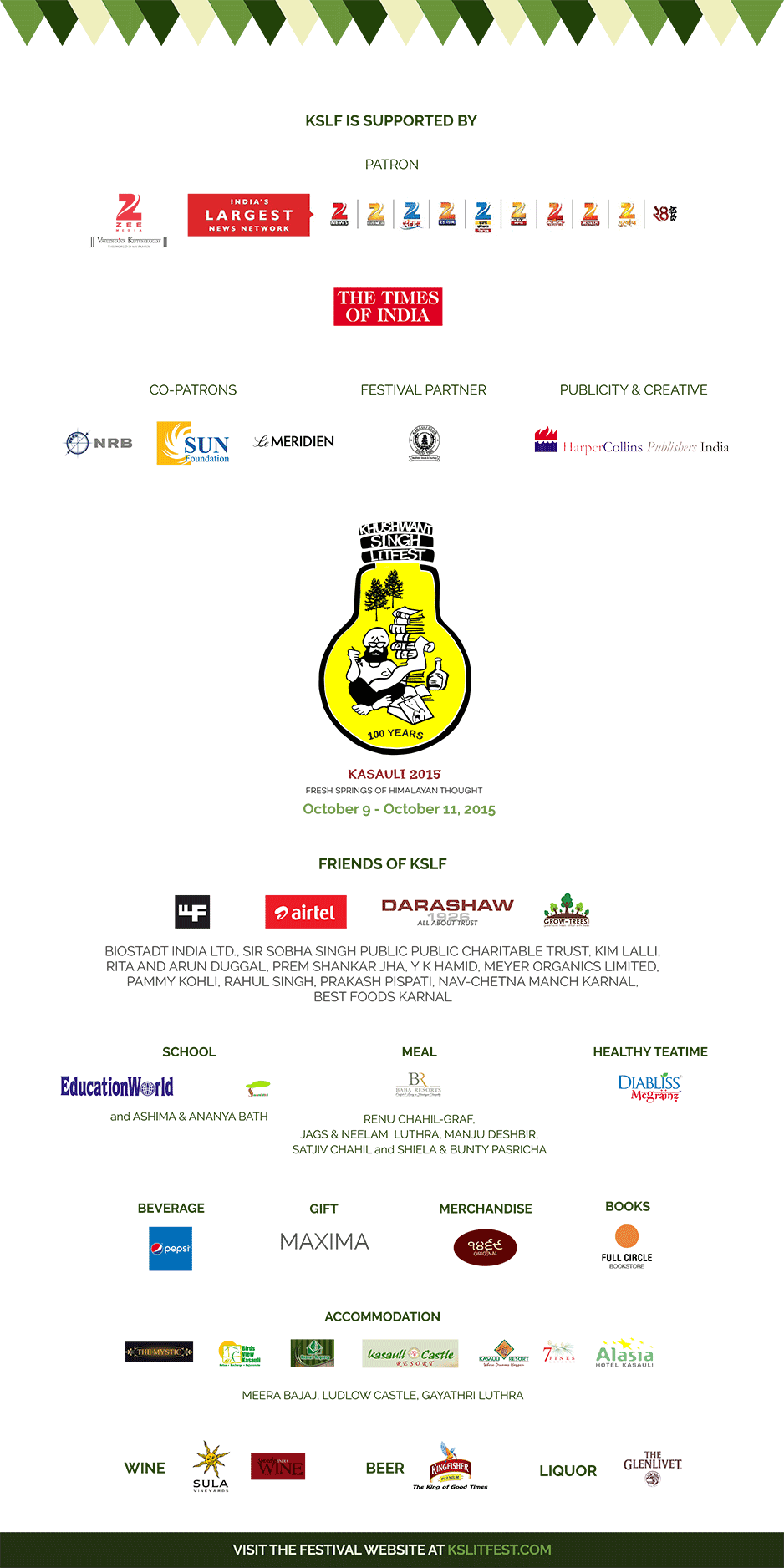
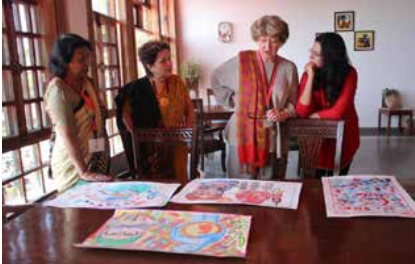 The Joy of Learning
The Joy of Learning
‘Tell me and I forget, teach me and I may remember, involve me and I learn” – Benjamin Franklin
The youth of Kasauli and the region have always been an integral part of KSLF, run by the Khushwant Singh Foundation (KSF). These programs are supported by Education World and Sannidhi, and organised by former Delhi Public School vice-principal Deepa Sethi and Lila Kutty, educationist from Kasauli and Delhi.
The exciting milestones this time are:
• A Khushwant Singh themed quiz competition
• Let creativity run wild on canvas and paper as students portray their impressions of this special centenary edition of KSLF
• Scholarships are offered for the less privileged girl children in Kasauli by Khushwant Singh Foundation
Judges for the creative competition are eminent art critic and eminent painter, Prof B.N Goswamy and Mr Jatin Das.
The coverage for KSLF 2015 has started flowing in! This page will be regularly updated with new links and newspaper scans. And if you notice anything missing, please send it over via the Contact Us form.
Articles
The Hindu, Oct 14, 2014 – Contest for renaming Khushwant Singh’s book
Khaleej Times, Oct 29, 2015 – When India, Pakistan bond over books
Mid-day, Oct 23, 2015 – Haikus for Khushwant
Khaleej Times, Oct 18, 2015 – From Lahore to Kasauli, with love
TOI, Oct 7, 2015 – Khushwant, naturally: Author’s classic relaunched
HT, Oct 4, 2015 – Round About: Partition to be revisited
Amolak.in, Sep 21, 2015 – A treasure trove in Kasauli
Story in Pictures – A recap of KSLF 2015 created by photographer Ajay Bhatia
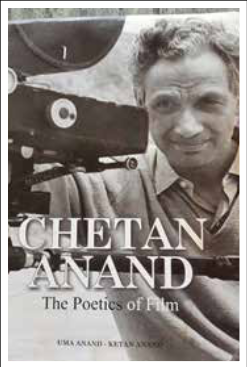 Starry Starry Nites
Starry Starry Nites
– Screening of ‘My Friend Husain’ by Bhavana Sresth and Barkhaa Roy.
– Screening of ‘Poetics of Film’, a tribute to Chetan Anand on his 10th death anniversary.
– Music and dancing to the tunes of the famous Assam Rifles Band.
As we write this on World Gratitude Day, 21st September, we realize how thank yous can be so fleeting. So it is deep gratitude that we express to you.
Why gratitude? Simply because so many have given with so much grace and without any expectation of return. It is Brigadier Lamba and Harleen, his wife, the Kasauli Club Patron, Lt Gen K.J. Singh, AVSM, Executive Committee Members, Mr Madhukar Malhotra, Col R.N. Bali, Col J.S. Dhanoa, Col N.S. Gulia, Mr Gurpreet Singh, Col (Retd) H.S. Kapur, Mr Balbir Singh Mangat, Mr Pankaj Sahgal, Executive Secretary, Col Devinder Singh, the always smiling staff of Kasauli Club, and the cantonment of Kasauli and Dagshai who have brought KSLF to you in this centenary year of Khushwant Singh.
Gratitude to our patron, the Zee Group, Mr Subhash Chandra Goyal, Bobby and Varsha Bedi and the team at Zee, Maitreyee Das, Samir, Pooja Gupta and others; our supporters, The Times Group, with Rahul Kansal and his team, Arjun Khanna, Madhur Kishore; co-patrons Bir and Trilochan Sahney, Le Meridien, Padma Shri Vikramjeet Sahney and the Sun Group, Kim Lalli who has been with us from the year dot, our other supporters and friends whose efforts made sure we saw the light of day. Geeta Gopalkrishnan, always ready to lend many hands.
Our stars are our authors and speakers who have repeatedly shown so much affection for Khushwant Singh. Especially our friends from Pakistan, UK and abroad who have undertaken such a long journey. His family, Mala and Naina Dayal, friends, Nandini Mehta, Syeda Hameed, Kalpana Sahni. Our friends from all the media who write so beautifully year after year. Our creative partners, HarperCollins India, especially Karthika V.K., Bonita Shimray and Amrita Talwar. Our photographer Ajay Bhatia who volunteered his time and talent. Puja, Poonam and the team from Full Circle who put up such a great show. David Davidar and Vasundhara from Aleph, thank you for the film on KS.
The people of Kasauli who have responded with such enthusiasm. Our hosts who have stood by us, Jag and Neelam Luthra, Bunty and Shiela Pasricha, Renu Chahil-Graf, Manju Deshbir, Satjiv Chahil, Mr Tiwana of Baba Resorts. Deepa Raghavan Sethi and Lila Kutty who run our Youth programs every year, supported by Dilip and Bharati Thakore of Education World and Bulbul Sharma of Sannidhi; Meera Bajaj, Rishma Gill, Romi Gill, Ludlow Castle and Vikram Bakshi and others who open their homes to us every year. Leela Lean, who so graciously judged our art events.
Our wonderful audience who come in from Kasauli and Himachal, from Chandigarh and Punjab, Haryana, Delhi, Bombay, Bangalore, Calcutta, Chennai, Hyderabad, MP and places too numerous to mention. Our dear comperes, Bhaichand Patel, Usha Alberqueque, Bachi Karkaria, who said yes without any ado. Razi Ahmed and the Lahore Litfest, ever ready to respond instantly to any request; our dearest friends from Lahore, Rati and Perin Cooper, whom we call the Mother Teresa sisters; Namita Gokhale of JLF who helped us so graciously.
Our friends who are there to support us year after year, Harinder and Kirandeep, the always willing Nina and Kishie Singh, Mahi Mehra, Bob Pupani, Rajesh, Priti and Veda Dogar, Ashima, Iknam and Ananya Bath, Sherry and Rahman, Poonam and K.B.S. Sidhu, Sonu Bhasin, our special experience creator, Reva and Bunty Singh, Naazneen Karmali, Robin Gupta, Vijai Vardhan, Fawzia Madni, Meher Bijlani, Sabi G.
Our event coordinator, Mihir Manker and his team, our travel partners Amar Bindra and Gazal Kwatra. And the trustees of the Khushwant Singh Foundation who support us all through the year. Purshottam Dhir and Varun Kathuria are indispensible. So also Ashok Chopra, Suneet Vir Singh, Anand and Deepa Sethi, Charanjit Singh. And before we end, the people without whom KSLF would have still been a dream: Brigadier Anantha Narayan and his wife Aparna. Our eternal gratitude.
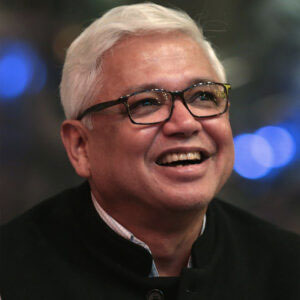
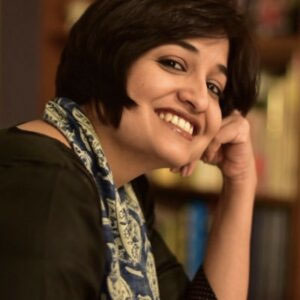
Ankita Mukherji is Senior Editor, NDTV. She has anchored several prime time shows on NDTV including Newsbreak and News at 10. Ankita has also anchored NDTV’s Breakfast news show for several years as well as a weekly current affairs show Politically Incorrect. Ankita began her career in publishing, working with Penguin Books and has been a producer for Just Books, India’s only literary tv show. Ankita studied at Jadavpur University, Kolkata and at Oxford University, where she was a Rhodes Scholar.

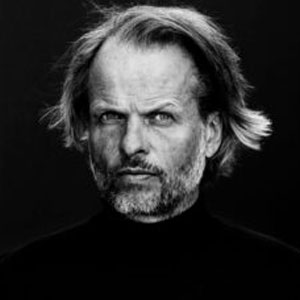

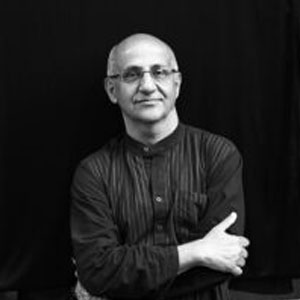
Harsh Mander, human rights and peace worker, writer, columnist, researcher and teacher, works with survivors of mass violence, hunger, homeless persons and street children.
Books and Writings
An overview of his writings and talks are available on http://harshmander.in/
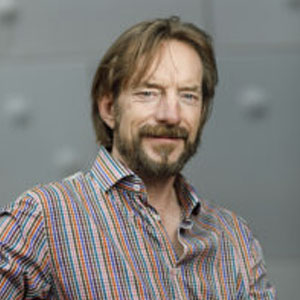
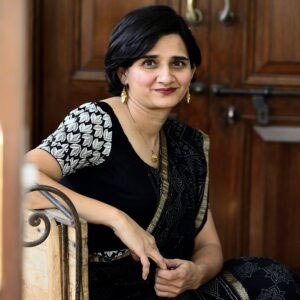



After earning degrees in Psychology and Physics from the University of California, Santa Barbara, I decided to see the world by working on ocean-going vessels as a merchant seaman. After many wonderful adventures, I worked as a firefighter in the city of San Francisco for four years. My strong interest in science and mathematics led me to become a teacher of 8th and 9th grade students. I have spent 35 years teaching Physics, Maths, Robotics and Computer Science

